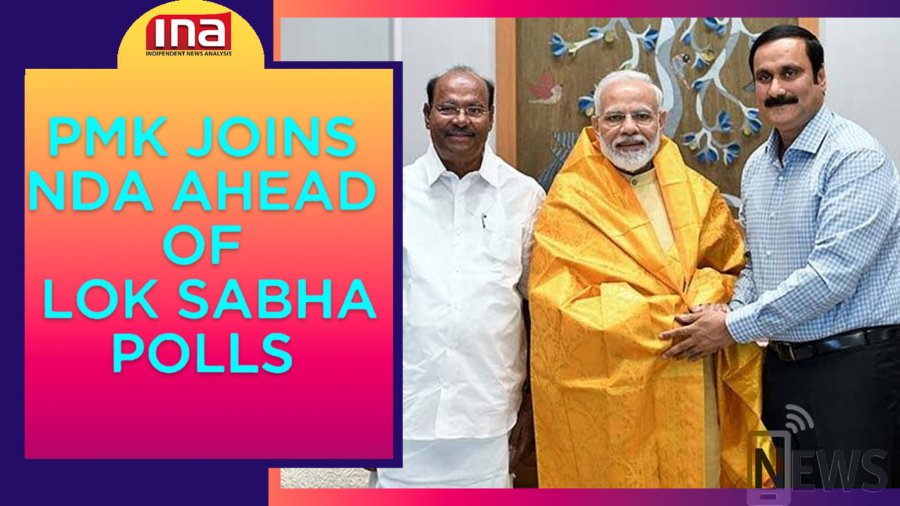In the recent flurry of political maneuvering in Tamil Nadu, the Pattali Makkal Katchi (PMK) found itself at the center of attention, oscillating between the All India Anna Dravida Munnetra Kazhagam (AIADMK) and the Bharatiya Janata Party (BJP) for alliance talks and seat-sharing negotiations.
Amid speculations, the PMK ultimately announced its decision to join the National Democratic Alliance (NDA), citing “national interest” as its rationale, thus breaking away from its urban tag associated with the BJP and marking a significant foray into the northern regions of Tamil Nadu.
Representing the Vanniyars, classified as the Most Backward Caste (MBC), the PMK wields influence primarily in the northern parts of the state. Fielding candidates in 10 parliamentary constituencies, the PMK emerged as the largest ally of the NDA in Tamil Nadu.
The strategic release of candidates for these constituencies underscored the PMK’s stronghold in the north and western regions of the state, with a clear focus on bolstering the NDA’s presence where the BJP’s influence had yet to firmly establish itself.
Analysts believe that beyond contributing votes from its strongholds in the north, the PMK alliance serves to diversify the NDA’s support base and mitigate its urban-centric image in Tamil Nadu. Moreover, by aligning with the PMK, the BJP gains a significant partner that counters its erstwhile ally, the AIADMK, which also sought the PMK’s support.
However, analysts caution that while the alliance may enhance the NDA’s electoral prospects, the distinct voter bases of the BJP and the PMK pose challenges to maximizing synergies. The PMK’s dominance in the north contrasts with the BJP’s foothold elsewhere in the state, necessitating nuanced strategies for electoral success.
The PMK’s pivotal role was highlighted during Prime Minister Modi’s campaign rally in Salem, where leaders from various NDA allies, including the PMK, shared the stage. Modi’s notable interaction with PMK founder S. Ramadoss signified the significance of the alliance, with both parties expressing mutual admiration and commitment to the partnership.
The PMK’s consistent presence in Tamil Nadu’s political landscape, rooted in its advocacy for the Vanniyar community’s rights, underscores its enduring relevance despite frequent alliance shifts. Founded in 1989, the PMK has maintained a steady vote share, particularly in northern districts, challenging the dominance of traditional Dravidian parties.
Looking ahead, PMK leaders emphasize their long-term vision of providing an alternative to the entrenched DMK and AIADMK duopoly. Their alliance with the NDA marks a strategic move towards this goal, positioning the PMK as a key player in shaping Tamil Nadu’s political landscape beyond the upcoming elections.
While the current alliance serves immediate electoral objectives, PMK leaders remain focused on their broader ideological agenda and aim to forge alliances that align with their vision for Tamil Nadu’s future. As they navigate the political terrain, the PMK’s evolution from a regional player to a national ally underscores its enduring influence in Tamil Nadu’s complex political ecosystem.


Add a Comment